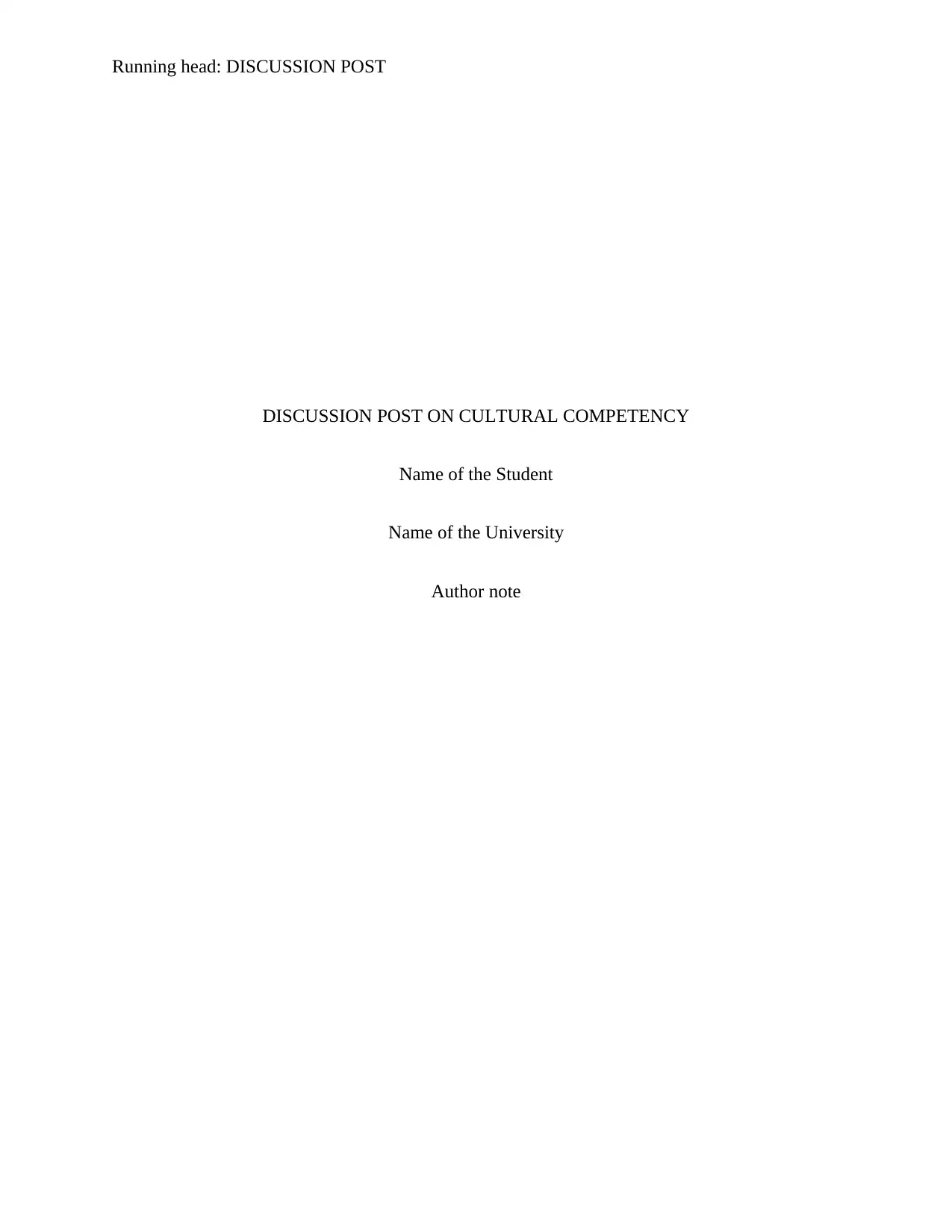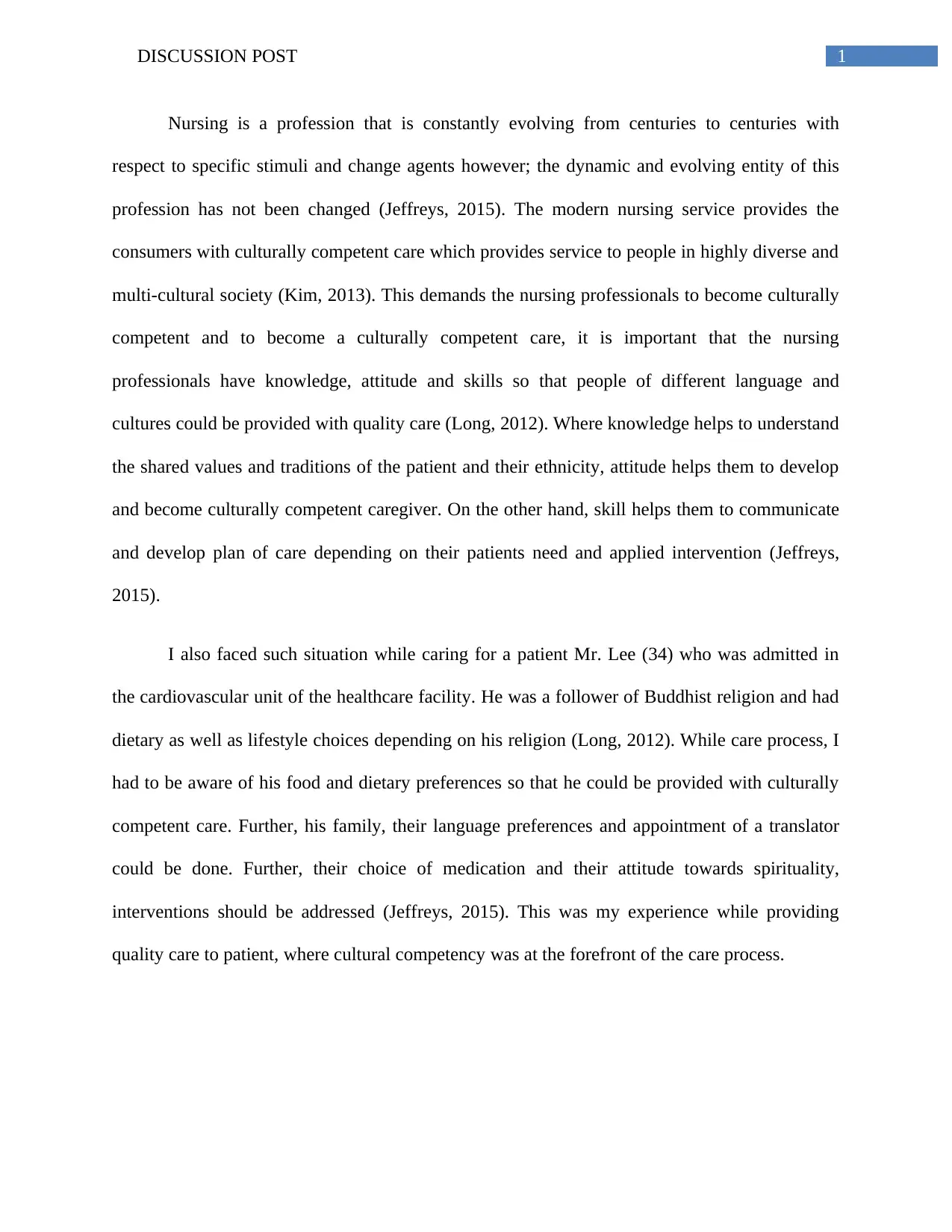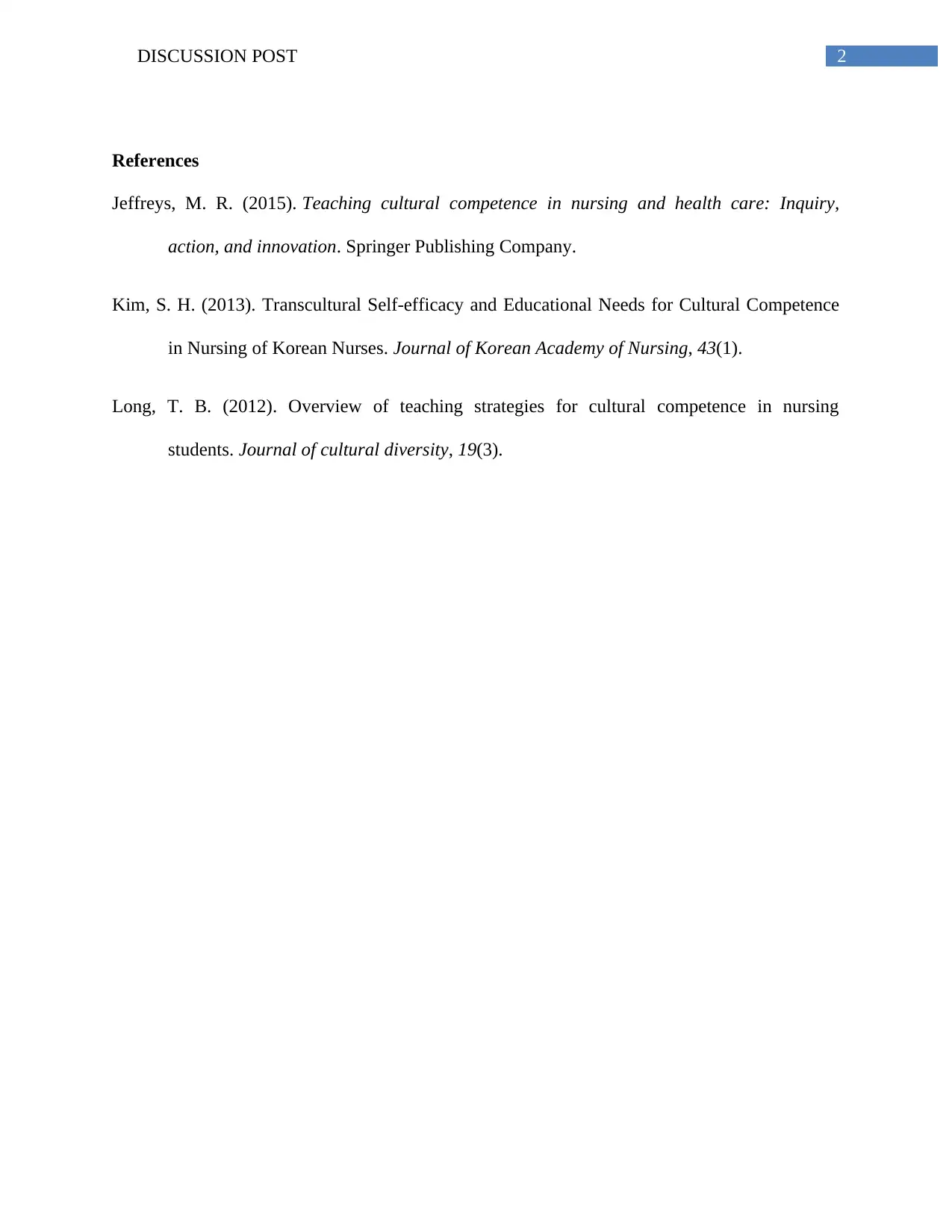Cultural Competency in Nursing: A Reflective Discussion Post
VerifiedAdded on 2023/04/21
|3
|434
|114
Discussion Board Post
AI Summary
This discussion post explores the importance of cultural competency in nursing practice, highlighting the need for nursing professionals to possess the knowledge, attitude, and skills necessary to provide quality care to patients from diverse cultural backgrounds. The author shares a personal experience of caring for a patient with specific religious and dietary preferences, emphasizing the significance of being aware of and respecting these cultural nuances in the care process. The discussion underscores the evolving nature of nursing and the increasing demand for culturally competent care in today's multicultural society, advocating for interventions that address patients' language preferences, medication choices, and spiritual beliefs to ensure holistic and patient-centered care.
1 out of 3










![[object Object]](/_next/static/media/star-bottom.7253800d.svg)